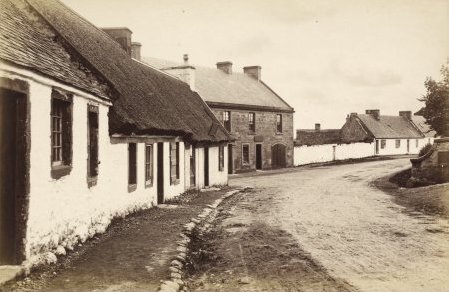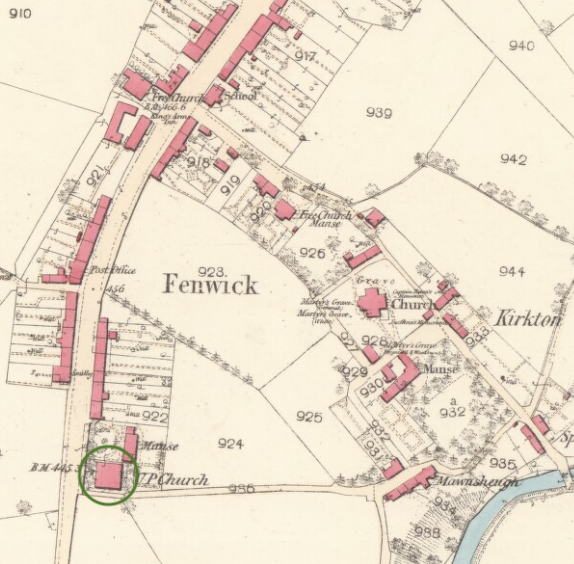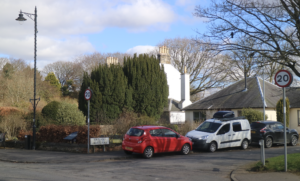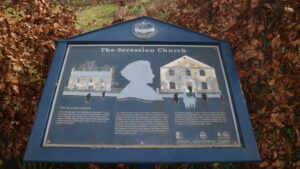
From Kilmarnock, Frederick Douglass travelled to Fenwick, a weavers’ village five miles to the north east on the Glasgow road. He addressed a meeting at the United Secession Church.



As well as the report in the Kilmarnock Herald, reproduced below, the meeting was also recorded in the diary of a handloom weaver James Taylor (1814-57) which he entitled Journal of Local Events, or Annals of Fenwick. Never intended for publication, it was discovered among family relics in the 1960s by Taylor’s great grandson.
On Sunday 5 April, the day after the meeting, Taylor wrote:
Mr Frederick Douglass, once an American slave, addressed a public meeting of the inhabitants of Fenwick in the Secession meeting house, on the subject of ‘American Slavery’. The Rev. Mr Orr occupied the chair. In the course of his speech, Mr Douglass made some severe animadversions on the Free Church of Scotland, for going to the slave states of America and uplifting money to support their church. Mr Thomas Brown from Kilmarnock followed in the same strain. The Rev. Mr. Dickie of the Parish Church, also spoke in condemnation of the American slave system. An uncommonly large meeting agreed unanimously to a resolution condemning churches in this country for having fellowship with the slave-holding churches of America. Mr Dickie closed with prayer.1
FENWICK.
On Saturday the 4th instant, a public meeting was convened in the United Secession Church, here, for the purpose of hearing an address from Mr Frederick Douglas, the american slave – the Rev. Wm. Orr in the chair. After a few appropriate remarks from the chairman, he introduced Mr Douglas to the meeting. His address was short, on account of the exhaustion of his body from spending every night for some time previously, and from this cause we had not the best opportunity of judging of his oratorical powers; from what we heard however, we think he possesses powers of eloquence of no mean order. He dwelt on the wrongs of his brethren in chains, and urged the necessity of vigorous exertions by the friends of emancipation on their behalf. Mr Thomas Brown from Kilmarnock also ably addressed the assembly on the same subject. The Rev. Mr Dickie, parish minister, was the last speaker. In an eloquent address, free from all personalities, he dwelt on the wrongs inflicted on the slave, and also on the duty of the people of this country arising from their lethargy and becoming more earnest for the cause of negro emancipation. He also concluded with prayer, and the meeting separated.
Kilmarnock Herald, 10 April 1846
Notes
- James Taylor, The Annals of Fenwick, ed. Tom Dunnachie Taylor ([Kilmarnock]: Ayrshire Archaeological and Natural History Society, 1970), pp. 70-1.